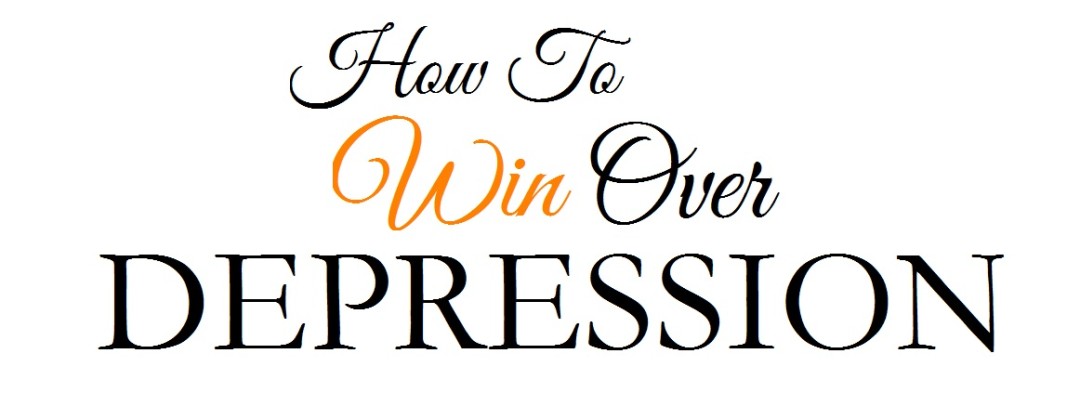The poll I put up last week had Francine River’s Redeeming Love and Tim LaHaye’s How to Win Over Depression neck-and-neck almost the entire time. At the very end Redeeming Love won out by a few votes, but I’d already decided to work on Tim’s book instead. Also, I’m reading through Why Does He Do That? by Bancroft in preparation for another series I’ll be doing sometime soon, and I don’t think I can handle reading about Michael Hosea being both an abuser and a rapist in the context of a book that glorifies it.
The copy of Tim’s book that I have is the original edition published in 1974. There’s an updated and revised edition he put out in 1996, but I’ve seen a copy of the book and the changes seem to be unsubstantial– for example, in the opening illustration the woman is “attractive” and in her mid-thirties in the 1974 version, but both descriptors are removed in the 1996 edition. For this reason I’m going to be paying less attention to the specific language he uses (which he may have changed) and focus more on the big-picture problems.
How to Win Over Depression has been an extremely influential book in conservative Christian circles– in some cases, this book or books like it are the only education a pastor receives about depression, and since it echoes the common cultural myths about mental illness it’s received as reliable information.
For a glimpse of how people typically respond:
I read this book years ago and it was the key to winning over depression. Excellent book. Since then I have bought several to give to others to help them learn how to manage depression and conquer it. It’s an awesome teaching and I recommend it to everyone. [from Christian Book, September 2008]
When I picked this book up at a library, I figured it would be like all the other unhelpful books on depression I had read. However, the book was amazing! This book literally changed my life! I had been suffering from depression for 6 years and tried therapy, hypnosis, anti-depressants and had a struggling relationship with the Lord … The book opened my eyes to that fact that my self-pity was a sin and the root of my depression. The book showed me how to beat the depression by giving me details on how to change my thinking. I have been relatively depression free since reading this book. Try reading this book, it might change your life too! [from Amazon, February 2000]
This book really ministered to me when I was in the depths of my depression. I even bought a few to give away. Looking through the book now, I really wish I had taken it more seriously and heeded the advice in it sooner. My only complaint is I didn’t really care for the chapter that lists common cures for depression, such as antidepressants because it needs to be updated and reiterated that abiding in Christ and walking in the Spirit is the only true cure for depression. [from Goodreads, March 2008]
After experiencing depression for over 20 years, I was given a copy of this book by my pastor. One reading is all it took to cure me of depression. I’ve gone through many tough times since reading it and though I have been down at times, I have never experienced depression. Faith in God and the Bible were the keys for me as well as the great writing skills and wisdom of Tim LaHaye. If you believe it, you’ll live it. [from Barnes & Noble, July 2003]
Negative reviews exist, although I think it’s important to note that most of those reviews seem to come from non-Christians who are primarily reacting to the “Christian” views– it was unusual for someone to criticize the ideas he presents, shrugging them off as being “not for them.” This is one of the reasons why I think it’s important for someone like me to critique this book– I’m a Christian, and capable of separating out the parts of this book that are truly Christlike and the things that are a result of Tim’s … misunderstandings.
It’s about 240 pages long and split into 20 segments, so I’m going to do my best to cover two chapters each week, since I’m not super interested in spending half of this year on it. We’ll see how it goes, though. I might need to step away from it some weeks, and I’ll do my best to put up a review of a book I think y’all should read (for example, Rachel Held Evans’ new book, Searching for Sunday, comes out next Tuesday and it’s definitely her best book yet– and I’m going to put of a review of it next week so you know exactly how awesome it is).
Anyway, so why did I pick Tim’s book over some of the others I could have chosen? Well, first … I already owned it (it was one of the “oh, you should totally review this on your blog!” gifts) so I didn’t need to give anyone more money. Second, Tim LaHaye is an important figure in conservative Christian culture. He co-wrote the Left Behind books which made so much money Nicolas Cage himself starred in a film adaptation of them (in my opinion, he should have just stuck with Knowing as his apocalyptic movie). Tim’s also written a bunch of other self-help and Christian-life-advice style books which were also successful in Christian circles.
Here’s to wishing us all luck and endurance. As always, if you’d like to read along and have a book-club-style discussion in the comments, that would be fantastic. Multiple points of view always help.



